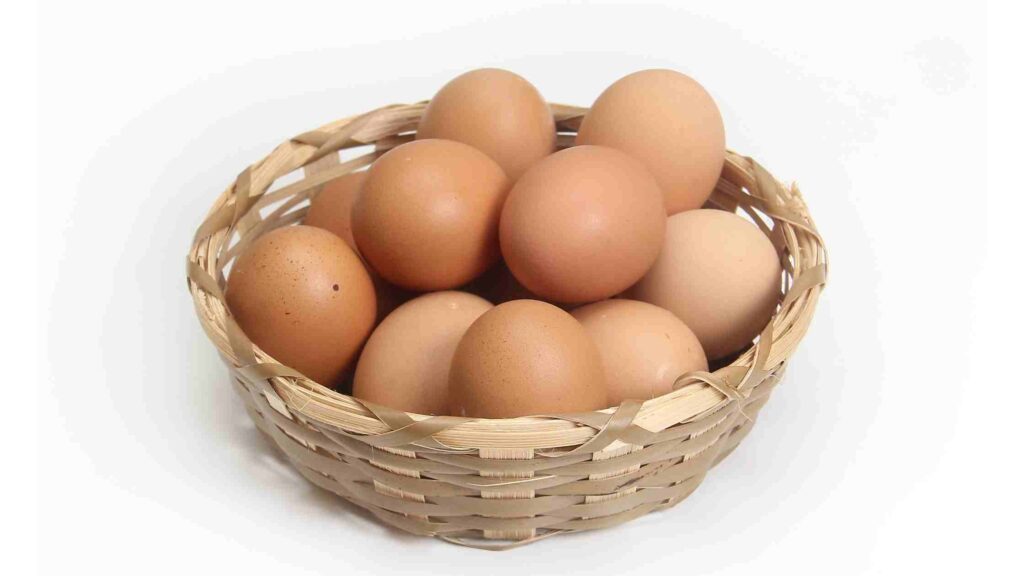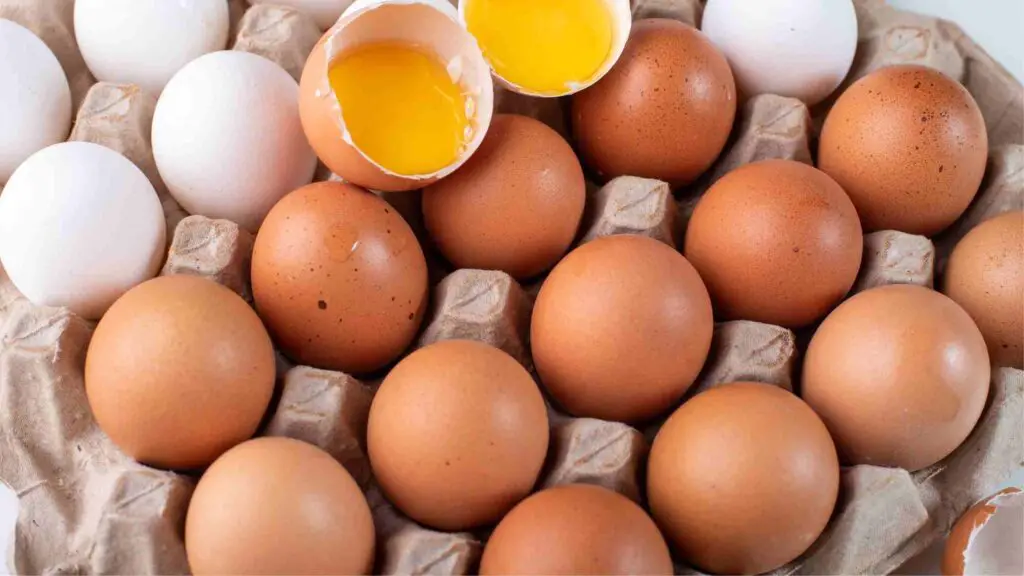Many countries have recently reported the problem of an egg shortage. This issue has become so severe that supermarkets have had a total absence of eggs. In cafes and hotels, customers are being served fewer portions of eggs than before. Because of such a sparse supply, the prices of eggs are shooting up.
During the lockdown, there was a shortage of eggs and many other grocery products like flour and rice due to panic shopping. People started storing food at their homes which led to a low supply. But now that the pandemic is over, it is difficult to figure out the real cause behind the shortage of eggs. There is no generic reason for the shortage of eggs, as different countries have subjective reasons for the low supply.
DiscontinuedNews is impartial and independent, and every day, we create distinctive, world-class programs, news, and content that inform, educate and entertain millions of people worldwide.
What has led to egg shortage?
There have been different reasons for egg shortage in different parts of the world. For instance, in India, there was fake information regarding poultry farming. Poultry farming has been a primary sector in the Indian economy, but during the pandemic, there was a spread of misinformation that chickens are the cause of the coronavirus. India is the third largest producer of eggs, and after the spread of this information, the poultry market crumbled. The demand for eggs decreased in the Indian market, leading to many poultry businesses shutting up. With fewer poultry farmers in the market, the production also became less, and eventually, the supply of eggs decreased.
Australia also has reported an acute egg shortage problem. During the pandemic, poultry farmers in Australia were apprehensive about their business as most of the restaurants and cafes were shut down. Cafes and restaurants are the biggest buyers for these poultry farmers; without them, their business reduces to almost nothing. But because of the trend of panic shopping and storing food during the pandemic, there was a massive rise in the demand for eggs. But Australian poultry farmers have made significantly fewer profits with the sales of eggs. This is because, due to heavy demand, they have increased the production of eggs. They had to purchase more land to accommodate more hens to increase production.
On top of that, free-range hens require very particular circumstances for laying eggs. They are affected by the temperature, the amount of sunlight they receive, wind flow and rain. The process made it very detailed for farmers to continue with poultry farming with less remuneration. This is why the production of eggs has decreased immensely in Australia, which has caused an egg shortage.
Similarly, Malaysia has also been facing the same problem of an egg shortage. The farmers here have given up on poultry farming because of low subsidies and policies. The cost of production is so much that they are barely left with anything in the end. This is why there have been discussions in the Malaysian Parliament to bring in new policies for the welfare of poultry farmers and to resolve the issue of an egg shortage.
Also Read – Discontinued Fast Food Items
Where do supermarket eggs come from?

When you step into your nearby supermarket, you will observe that so many types of eggs are available for purchase. Have you ever wondered where these eggs come from and how they are different from each other? Well, you will be surprised to know that these eggs are not only different from their exterior looks but are also very different internally. Sometimes eggs that look similar are also entirely different from each other internally. Some different types of eggs are-
- Free range
- Natural
- Organic
- Brown eggs
- White eggs
- Vegetarian diet
- Pasture-raised
- Conventionally-raised eggs
- Hormone-free
What Happened Next If Egg Shortage Isn’t End?
With so many labels in the market, it might confuse you to choose the best one for yourself as a customer. Well, for your rescue, you must be informed that most of these eggs have the same nutritional values and are different just in terms of price. The eggs available in your supermarket are bought from your nearby poultry farms. After making the purchase, these eggs are separated based on their appearance and type. These eggs are then washed and sanitised before being displayed for sale. Many supermarkets also practice egg candling, a process through which an egg’s internals are investigated with a candle’s help. This helps in quality checking and maintaining a sense of trust among customers. In many European countries, there is a rule among poultry farmers not to touch an egg with bare hands. This is to prevent the damaging of the egg’s outer layer, called bloom or cuticle, which is antibacterial and helps keep the pores of an egg tight. Poultry farmers use significantly fewer chickens, so there is not much to be done with them after breeding. More priority is given to hens as they lay eggs used for business. More attention is given to the diet of hens and how they are kept. Poultry farmers generally use different kinds of hens for the production of eggs. These different kinds of hens are-
- Leghorn Chickens – Most of the commercial white eggs you see in your supermarket or played by these chickens only.
- Rhode Island Red – This bird produces the brown eggs that you see near supermarkets.
- Araucanas – These are the hens that lay blue eggs.
- Welsummer and Marans – These hens lay eggs that are chocolate brown.
Also Read – Bottled Water Shortage
How old are the eggs available in supermarkets?
On average, the eggs you find in your supermarkets are 6 to 8 months old before they are put on the shelves to sell. So, unfortunately, they are not as nutritious and full of proteins as you think. Compared to them, fresh farm eggs are fresher and full of nutrients. As time passes, the nutrient value of an egg decreases. This is why it is always advised to check the packaging information behind eggs to understand how old they are and where they have been bought from.
Many supermarkets get their egg stocks from machines that chemically produce eggs. You must avoid consuming such eggs because they are very dangerous for your health. Fresh farm eggs taste a lot better than other factory-made eggs. Egg preservation is also an essential thing when it comes to storing eggs. Eggs get spoiled easily if the temperature is not correct as bacterial infusion starts working up. The right temperature to store eggs is 45°.
The demand for eggs will likely remain perineal because of their low price and high nutritious value. It is the cheapest protein source with such little fat and carbohydrates. It is one of the simplest foods to make, and there is so much you can do with it. From making French toast to omelettes and baking cakes, eggs do it all for us. When people have little time to prepare meals, eggs are everyone’s first choice.
You can eat eggs when you are dieting, and you can eat eggs when you’re not because you don’t have to compromise on your tastebuds. It has become a patent breakfast option among many people across the globe, replacing even cereals which are now condemned for their high sugar levels and low nutritional values. Eggs have broken down the class hierarchy by occupying a space in everyone’s home, irrespective of economic conditions. Everyone has taught eggs into their diet, from the wealthiest person to someone from a humble background. Because of such high demand among people, the government needs to take suitable measures to ensure the proper supply of eggs. The government must provide poultry farmers with subsidies and tax relaxations to produce eggs.
Read Also – Broccoli Out Of Stock
As the cost of water, land and electricity has increased so much, the government needs to take the welfare of these farmers into their own hands. Because of low-profit percentages so, many farmers have given up on poultry farming. So it is the government’s rightful duty to ensure that these farmers earn the good money they deserve.
The shortage of eggs has caused enormous turmoil among the public, and it is the fundamental job of the government to look after the public’s welfare. Governments from around the world of subjective countries must take measures that suit their situations. It is impossible to cut off the supply of eggs as it is a staple diet of the rich and the poor. Some essential minerals and vitamins offered by eggs include Vitamins B12 and D, Biotin, Calcium, Choline, Iodine, Iron, Molybdenum, Pantothenic acid, Potassium, Riboflavin, Selenium and Zinc.
